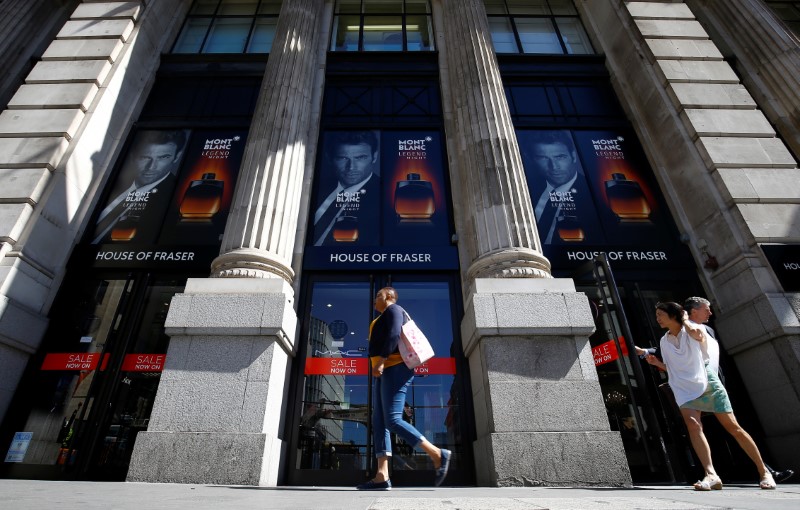Investing.com’s stocks of the week
LONDON (Reuters) - England's run to the semi-finals of the soccer World Cup and a scorching summer encouraged shoppers in Britain to spend more on food, drink and electric fans in July, but overall spending rose only slowly, according to a survey of retailers.
Total retail sales values rose by 1.6 percent compared with July 2017, the British Retail Consortium (BRC) said, the weakest increase since February, excluding a fall in April which was distorted by the timing of Easter.
"Last month's sweltering temperatures kept shoppers focused on eating, drinking and keeping cool. Food sales had their best July in five years, while fans and cooling equipment flew off the shelves," Helen Dickinson, the BRC's chief executive, said.
"However, total sales growth slowed as the heat laid bare the underlying weakness in consumer spending."
Non-food retail sales fell after rising in the previous two months, the BRC said.
British shoppers, whose spending accounts for about 80 percent of the economy, have seen inflation rise faster than their pay for much of the past decade, although in recent months growth in earnings has turned positive in real terms.
Separately on Tuesday, Barclaycard the credit and debit card division of Barclays (L:BARC), said its measure of consumer spending -- which includes bars and restaurants -- rose by an annual 5.0 percent in July , driven by shopping in supermarkets and an increase in fuel prices.
Pub spending rose by nearly 17 percent, the most since April last year, helped by the World Cup.
"It will be interesting to see if this strong level of growth continues," Barclaycard director Esme Harwood said.
"It's clear that some consumers remain cautious about what's to come with interest rates rising and overall confidence in household finances down slightly from June."
The Bank of England last week raised its benchmark interest rate for only the second time since the financial crisis more than a decade ago but stressed it would continue to raise borrowing costs only gradually.
